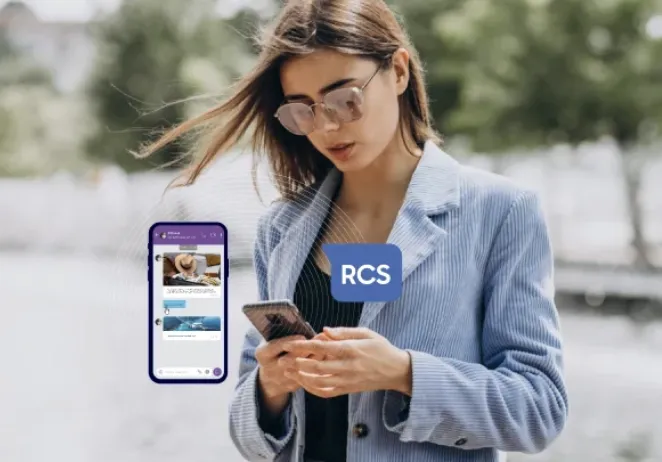Introduction to Effective Business Communication
Businesses need to communicate effectively with both internal and external audiences. For many businesses, this means not only understanding the right messaging to share, but the right platform to share it on. Depending on your product, service, and goal, you might choose email, SMS solutions, or even banner ads on media sites or social posts.
Before engaging in any of these activities, be sure to analyze your goals and audience to maximize your communication results.
Internal Effective Business Communications
- Team Building – Effective communication within your work group helps build up your team. Employees will feel empowered to act, as they gain a strong understanding of what is expected of them.
- Employee Morale – Keep team members apprised of changes in the group, updates with projects, and company updates. This helps employees feel valued and avoids miscommunications that can lead to delays.
- Productivity – Communicating the status of projects lets everyone on the team know what is expected of them and helps to ensure that projects are completed on time.
- Knowledge Sharing – Passing on corporate knowledge helps facilitate decision making, since employees can learn from past successes and failures. It helps turn one-time problem-solving solutions into reusable corporate policies.
- Trust Building – Employees are more productive when they have a strong sense of trust, and they work more effectively as a team. Use communication techniques to show employees that they are trusted members of the team.
- Change Management – Effective communication is crucial during times of change, such as mergers, acquisitions, or shifts in company strategy. Keeping employees informed helps in managing resistance, reducing anxiety, and ensuring a smoother transition.
- Idea Sharing – There are a number of ways you can use communication within your organization to encourage the sharing of ideas about product enhancements, effective collaboration within the team, and even new employee initiatives. This can be done through a variety of mediums, such as internal forums and encouraging blog writing.
- Customer Feedback – When communication comes back from the customer, either through things like surveys or SMS messages, businesses gain a different perspective on their customers’ needs and problems that they have. This helps them improve their customer service.
- Crisis Preparedness and Management – Regular communication prepares the team for potential crises by establishing clear protocols and ensuring everyone knows their roles. During a crisis, effective communication helps in managing the situation efficiently and minimizing damage.
External Effective Business Communications
- Customer Satisfaction – Effectively communicating with customers improves their satisfaction with the products and services you provide. It shows that your business cares about them, making them more likely to feel positive about their experience with your brand.
- Loyalty Building – Sending messages, coupons, and rewards helps improve customer loyalty and encourages repeat sales.
- Awareness Generation – Brands looking to build awareness among new customers, or trying to show new products and services to existing customers, need to create effective messaging
- Lead Building – Brands use communication tools, like SMS, email, and websites, to move customers from the awareness phase of the communication funnel and convert them into leads.
- Tailoring Messages – Personalizing communication based on customer preferences and behaviors enhances their experience and makes them feel valued. Personalized messages, offers, and recommendations can drive higher engagement and conversions.
- Sales Generation – Brands use a number of communication tools to guide leads through their sales pipeline and convert them into customers.
- Creating Valuable Content – Providing valuable content through messaging images, videos, and offers helps educate and engage customers.
- Reputation Management – Messaging allows for real-time engagement with customers, responding to reviews, addressing complaints, and acknowledging positive feedback.
- Communication at Every Touchpoint – Mapping the customer journey and using messaging at key touchpoints ensures consistent and relevant communication. This enhances the overall customer experience from awareness to post-purchase support.
Advantages of Business Communication
This post touches on some of the advantages of business communication. Without effective business communication, most businesses would struggle to survive. Effective communication is the backbone of any successful organization, enabling seamless coordination, fostering innovation, and building strong relationships both internally and externally.
Find out how the MessageWhiz SMS marketing software can help you with your SMS messaging campaigns for both internal and external communications. Whether it’s enhancing team collaboration or engaging with customers, our powerful tools ensure that your messages are delivered efficiently and effectively.
Message Whiz also provide secure Telecom SMS Solutions and Enterprise SMS Solutions
Ready to elevate your business communication? Contact us today to learn more about our SMS marketing solutions and start transforming your communication strategy!
FAQs on Effective Business Communication
What is effective communication in business?
Effective communication in business involves the clear and concise exchange of information that helps achieve organizational goals. It ensures that messages are understood as intended, promoting collaboration, efficiency, and engagement among employees and stakeholders.
How can SMS improve business communication?
SMS provides a direct, immediate way to communicate with customers and employees. It ensures timely delivery of important information, promotions, and updates, enhancing overall communication efficiency.
What are the benefits of using SMS for internal communication?
SMS can quickly disseminate important information to employees, ensuring everyone is on the same page. It is particularly useful for urgent updates, reminders, and alerts.
How does SMS help in improving customer satisfaction?
SMS allows businesses to send personalized messages, updates, and promotions directly to customers. This direct engagement helps build stronger relationships and enhances customer satisfaction.
How can SMS enhance sales generation?
By sending targeted promotions, reminders, and updates, SMS can drive immediate action from customers, leading to increased sales and conversions.
What are the advantages of using SMS for remote work communication?
SMS ensures that remote employees receive important updates and information instantly, keeping them connected and engaged regardless of their location.
What are the security considerations for using SMS in business communication?
Businesses should use encrypted messaging services, implement two-factor authentication, and follow best practices for data privacy to ensure secure SMS communication.



































